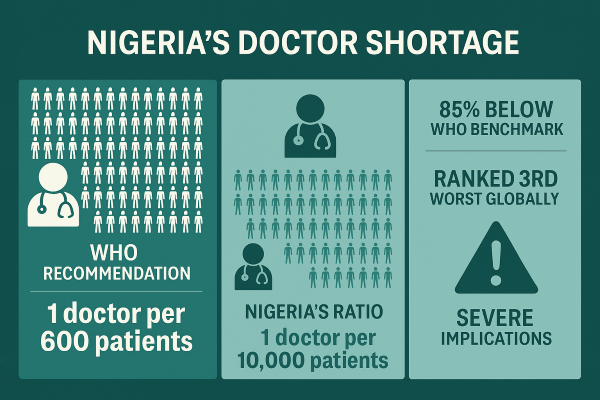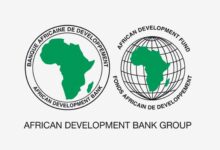72-Hour Shift Tragedy: Doctor’s Death Exposes Nigeria’s Broken Health System

Nigeria’s fragile healthcare system was dealt another devastating blow last week when Dr. Oluwafemi Rotifa, a resident doctor at the Rivers State University Teaching Hospital (RSUTH), collapsed and died after reportedly working an unbroken 72-hour emergency room shift.
Fondly known as “Femoski” among peers, Rotifa’s death has sparked outrage across the medical profession and renewed calls for urgent reforms to address doctor burnout, manpower shortages, and unsafe working conditions in Nigerian hospitals.
A Preventable Death in the Line of Duty
Rotifa, the sole doctor manning RSUTH’s emergency unit during his marathon shift, collapsed in the call room and was rushed to the Intensive Care Unit, where attempts to resuscitate him failed.
According to the Nigerian Association of Resident Doctors (NARD), this tragedy was entirely preventable. NARD President, Dr. Tope Osundara, described the loss as the result of systemic neglect:
“The overuse of manpower and exhaustion killed him. He was left alone to carry a workload that should have been distributed among several doctors. This was death on duty.”
Rotifa’s story is particularly painful because he had just secured registration with the UK General Medical Council, in preparation for relocation abroad—a path increasingly chosen by Nigerian doctors seeking safer working conditions and better opportunities.

Nigeria’s Healthcare Crisis in Numbers
The tragedy underscores a systemic collapse that experts have long warned about:
- Doctor-to-patient ratio: 1:10,000 in Nigeria vs. the WHO-recommended 1:600.
- Brain drain: Over 15,000 Nigerian doctors currently practice in the UK, U.S., and Canada.
- Burnout epidemic: Resident doctors routinely work 48–72-hour shifts, a practice outlawed in advanced health systems.
- Mortality risk: Chronic fatigue impairs judgment, delays care, and endangers both patients and medical workers.
The Nigerian Medical Association (NMA) condemned Rotifa’s death as “heartbreaking and unacceptable.” Its Vice President, Dr. Benjamin Olowojebutu, called for regulated working hours, improved salaries, and comprehensive health insurance to protect frontline doctors.
Economic and Social Costs
Beyond the human tragedy, the economic consequences of doctor burnout are staggering. With health workers dying prematurely or fleeing abroad, Nigeria is losing both scarce talent and the billions invested in training them.
Each doctor trained in Nigeria costs the system an estimated ₦10–15 million. Losing them to poor conditions or emigration drains scarce resources, weakens service delivery, and deepens reliance on expensive foreign-trained doctors.
Moreover, a weakened health system discourages foreign direct investment (FDI) in Nigeria’s emerging medical tourism and pharmaceutical sectors—industries that could generate thousands of jobs if well harnessed.
Calls for Reform
Stakeholders say the death of Dr. Rotifa should be a turning point. NARD has demanded:
- Enforced staffing policies that prevent unsafe workloads.
- Compensation for Rotifa’s family, as a symbol of accountability.
- Investment in hospital infrastructure to match Nigeria’s growing population.
- Legislation to cap work hours, mirroring global best practice.
The Federal Government, for its part, has pledged to address manpower shortages under its Renewed Hope Agenda for Healthcare, but critics argue that progress has been too slow.
BRANDECONOMY Takeaway
Dr. Rotifa’s death is not just a personal tragedy—it is a mirror of Nigeria’s broken healthcare economy. Until systemic reforms prioritise safe staffing, fair compensation, and investment in human capital, more doctors will be lost to exhaustion—or to foreign job markets.
For Nigeria to achieve Universal Health Coverage (UHC) and build a robust medical economy, protecting its frontline doctors is not optional. It is the first line of national survival.
🔑 SEO Tags: Nigeria healthcare crisis, resident doctor death, medical burnout Nigeria, RSUTH doctor, NARD reforms, Nigeria doctor-to-patient ratio, brain drain Nigeria
Would you like me to now design a companion infographic set (1: Nigeria’s doctor-to-patient ratio, 2: Rotifa’s 72-hour duty timeline, 3: Urgent reforms NARD is demanding) so this piece can hit both emotional and data-driven impact across BRANDECONOMY’s digital platforms?












